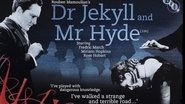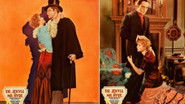Cebalord
Very best movie i ever watch
Chirphymium
It's entirely possible that sending the audience out feeling lousy was intentional
Kaydan Christian
A terrific literary drama and character piece that shows how the process of creating art can be seen differently by those doing it and those looking at it from the outside.
Janis
One of the most extraordinary films you will see this year. Take that as you want.
HotToastyRag
The 1932 version of Dr. Jekyll and Mr. Hyde is easily the most famous and revered film adaptation, and for good reason. Not only was it spectacular at the time it was made, but it also balances the perfect amount of symbolism and scariness as the story requires.There are different interpretations of the story, but this one puts a great emphasis on sex, reminding me in a way of Splendor in the Grass. Fredric March is engaged to Rose Hobart, but her father forces them to have a long engagement. Freddie doesn't want to wait, but Rose keeps asking him, very suggestively, if he'll wait. Even though this movie is pre-Code, there are still some lines it didn't choose to cross, so it's symbolically suggested that Freddie loses his mind because he can't control his hormones. He turns into Mr. Hyde because his animal instincts take over, and his alter-ego takes him right into the arms of a prostitute, Miriam Hopkins. Miriam has a very interesting character. She's not exactly a "hooker with a heart of gold", but she has the perfect amount of sweetness and spunk to her character that would tempt someone whose hormones are going berserk. Miriam does a very good job in the film, but it's Freddie who shines, earning his first Academy Award. If you've seen a more modern version, please check this one out. I'm sure you'll love it. The makeup, special effects, and direction make the transformation scenes extremely frightening and realistic. Rouben Mamoulian's direction was groundbreaking at the time, frequently using split screen to show the split personality of Fredric March. This is one of those classic films, like the original Frankenstein or The Hunchback of Notre Dame that stands the test of time, no matter how many remakes are made.
JohnHowardReid
Nowadays it is extremely fashionable for critics to praise Mamoulian's version at the expense of Fleming's. After all, Mamoulian has a much higher status as an auteur than Fleming. Why? Fleming died in 1947 whereas Mamoulian was attending retrospectives and giving interviews well into the 1970s. Furthermore, his comparatively small body of work — 16 films over a 28-year period — makes the job of researching so much easier, leading to a proliferation of articles, theses and career studies. In addition, the 1931 version has attained a cult status due its purchase and subsequent suppression by MGM. (And no wonder they hid it away. Although Mahin receives sole screen credit, not only the adaptation — with its introduction of the Ivy character who is not present in Stevenson's line-up — but many of the scenes themselves are a direct steal.Despite the similarities, Mamoulian's is really a somewhat different film, looking at Hyde from a less moralistic angle. His direction is much more showy than Fleming's with its imaginative first-person camera and ingenious slow wipes. Both films have the benefit of no- expense-spared period sets and marvelously atmospheric photography.March's Hyde with its grotesque make-up and spell-binding special effects is one of the highlights of 30s cinema. The actor won an Academy Award for his performance, but deserved it more for his projection of the incarnately evil Hyde than his portrayal of the somewhat simpering Jekyll. Tracy's Hyde has an equally fascinating malevolence, but his Jekyll is much more forthright and believable. And despite the technical brilliance of March's transformation (compared to the obvious if increasingly skilled use of superimposition for Tracy's), the climactic scenes in the Fleming film are more effectively handled and set. (The climax starts about three-quarters of the way through when the transformation unexpectedly takes place of its own accord. Hyde suddenly becomes the dominant personality, taking refuge in Jekyll primarily to escape detection. The Mamoulian climax starts with Jekyll sitting on a park bench, listening to a nightingale and quoting Keats while a black cat stealthily advances on her prey — an effective metaphor, but Fleming's is even more vivid: Tracy goes whistling off in the fog to his engagement party. He disappears into the mist. The whistling continues jauntily, hesitates and stops. Cut to a close-up of Tracy, slightly bewildered. He starts off again, once more sauntering gaily into the fog, but this time he is whistling not the Lana Turner theme but "See Me Dance the Polka".) Not only is Tracy more than a fair match for March, but producer Fleming has surrounded him with an absolutely first-rate support cast. Ingrid Bergman's remarkably luminous yet sexually provocative performance (this was her 4th American film, following Intermezzo, Adam Had Four Sons and Rage In Heaven. Her next film was Casablanca) far outshines Miriam Hopkins'. Of course, we expect a skilfully charming performance from Ingrid. What is even more of a surprise is the appealing conviction Lana Turner brings to the heroine. (Oddly enough the roles were originally reversed, but Bergman persuaded Fleming to let her try her hand at a "bad girl".)Ian Hunter is perfectly cast as the stolid Lanyon (yet so much more personable than Holmes Herbert in the Mamoulian version), while Peter Godfrey brings a lively yet sensitive spirit to Poole. Donald Crisp purrs his usual warm authority into Sir Charles and there are some delightfully animated character cameos from both upper (Lawrence Grant's indignant Dr Courtland, Aubrey Smith's smooth- tongued bishop) and lower (Billy Bevan's talkative park attendant, Alec Craig's inflexible waiter, Forrester Harvey's mendacious manager) classes. While not as showy as Mamoulian's, Victor Fleming's direction is equally as sophisticated, using a great variety of effective camera angles and dramatic compositions, allied with a superb sense of atmosphere and a masterful knowledge of pace and movement. Right from its opening credits to its fade-out 127 minutes later, the narrative grips like the proverbial vice, no matter how familiar you are with the story or how many times you've seen the film before. The credit for this mounting excitement and suspense must be shared with the players, the writers, and the other technicians. Tracy never gave a more electrifying performance. His Hyde is achieved with comparatively little make-up (compared to March's), the menace conveyed primarily through a change in voice and demeanor. Mahin has supplied him with some fascinatingly malicious dialogue. Even when stealing scenes direct from Heath and Hoffenstein, he usually improves them. For example, Tracy's famous line, "Even as Hyde I warned you", is missing from Mamoulian, leaving March's motive in warning Lanyon completely unexplained.(As noted above, both scripts have been considerably fleshed out from Stevenson's original novel, while retaining much of its flavor and many of its ideas — principally that Jekyll's vice is from the very first a deliberate assent — rare themes indeed for Hollywood, especially i
begob
Through experiment a scientist reaches the dark side of his character, unleashing hell on the women in his life.Early talkie with a lot of novelty in the use of the camera. Opening scene is about 3 mins of first person POV, with a bit of shaky cam. There's time-lapse special effects, plenty monkey-jump stunts, and a really good shot of the villain being pursued by shadows. Screen swipes were clunky, many excellent close ups. Also a racy scene early on that shows the director's ambition, and some interesting cut aways to sex symbols.Negatives: stodgy dialogue, slow editing, and the completely conservative story. A lot of issues raised, but really we're stuck with a sanitised fairy tale where the status quo must be restored. Britain (ie. America) - land of opportunity where nothing changes.Performances were overworked, but that may be down to the dialogue. Some really bad accents, and an unconvincing version of late Victorian London.Music nothing special - a bit of Beethoven (not Bach) at the start on an irrelevant organ.Overall - interesting, but slow story and dull moralism.
jacobjohntaylor1
This is a great movie. It is one of the best horror movie ever made. Dr. Jekyll discovers man has two souls. A good soul and an evil soul. He tries to divide to two souls. He creates a formula that turns him into a monster that is his evil self. It starts to take him over. Do not think that because this movie is old that it is not scary. It is one of the scariest movies ever made. Based on one of the best horror stories ever told. This movie is a must see. It has a great story line. It also has great acting. It also has great special effects. This movie is very intense. It is one of the best horror movie ever. I need more lines. And I am running out of things to say.




